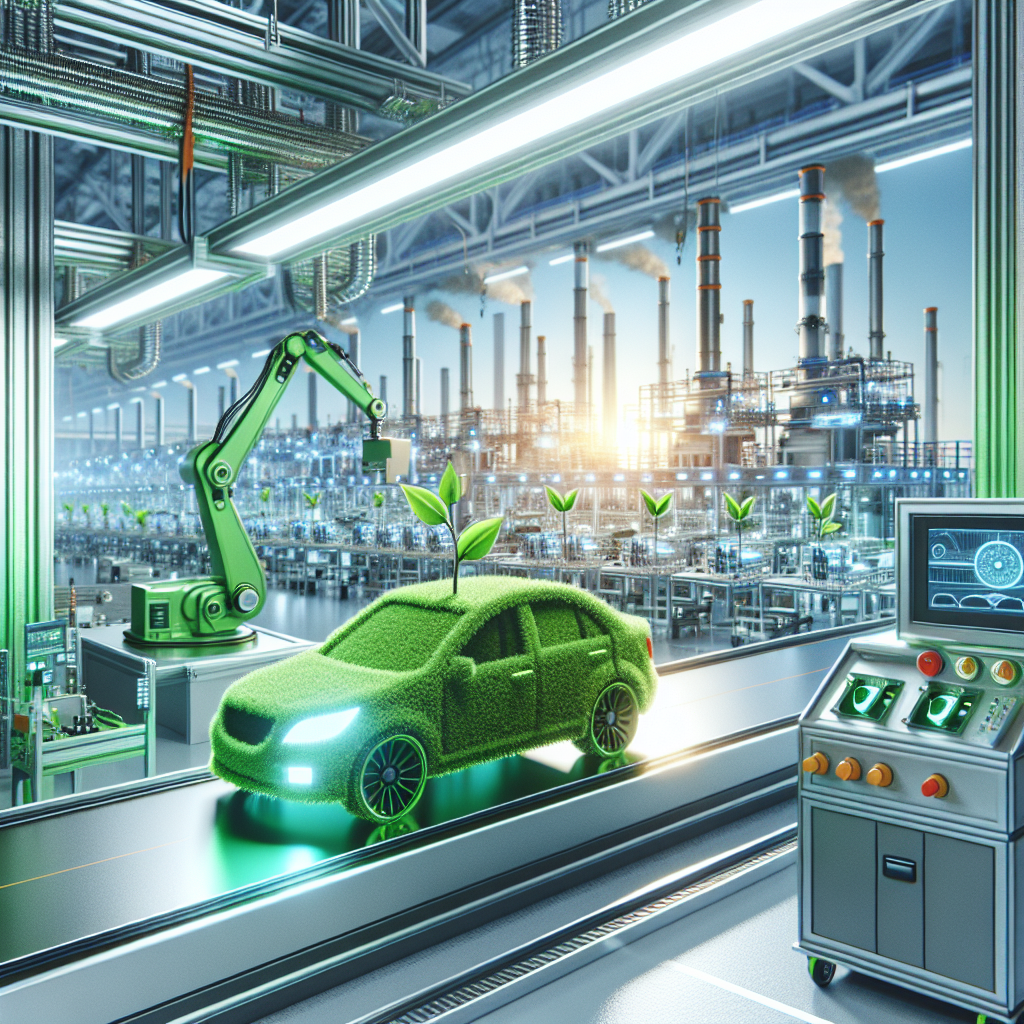Car Manufacturing: Innovations Leading to Sustainability
As the global community becomes more aware of the environmental impacts associated with transportation, the car manufacturing industry is at the forefront of adopting sustainable practices. Innovations in technology, materials, and production processes are paving the way for a future where cars are not only more environmentally friendly but also more efficient and safer. This article explores the latest advancements in car manufacturing that are leading the charge towards sustainability.
Electrification of Vehicles
One of the most significant shifts in car manufacturing is the move towards electrification. Electric vehicles (EVs) are central to reducing emissions and decreasing the automotive industry’s carbon footprint. Manufacturers are investing heavily in battery technology to increase energy density, reduce charging times, and extend the lifespan of batteries. Innovations such as solid-state batteries promise to deliver greater efficiency and safety compared to current lithium-ion technology.
Lightweight Materials
The use of lightweight materials is another innovation driving sustainability in car manufacturing. Materials such as aluminum, carbon fiber, and high-strength steel can significantly reduce a vehicle’s weight, leading to better fuel efficiency and lower emissions. Lightweight materials also offer improved performance and safety, as they can absorb impact energy more effectively in the event of a collision.
Advanced Manufacturing Techniques
Advanced manufacturing techniques such as 3D printing and digital modeling are revolutionizing the way cars are designed and built. These technologies allow for more precise manufacturing, reducing waste and improving the efficiency of the production process. 3D printing, in particular, enables the production of complex parts that would be difficult or impossible to create with traditional manufacturing methods. This not only reduces material waste but also opens up new possibilities in vehicle design.
Autonomous and Connected Vehicles
Autonomous and connected vehicle technology holds great potential for improving road safety and reducing emissions. By optimizing driving patterns and reducing traffic congestion, these technologies can significantly lower fuel consumption and emissions. Furthermore, autonomous vehicles can be programmed to prioritize energy efficiency, further enhancing their environmental benefits.
Renewable Energy in Manufacturing
The shift towards using renewable energy sources in car manufacturing plants is a critical component of the industry’s move towards sustainability. Solar panels, wind turbines, and other renewable energy technologies are increasingly being used to power production facilities, reducing reliance on fossil fuels and lowering carbon emissions. Some manufacturers are also implementing energy-efficient practices throughout their operations, from lighting and heating to the machinery used on the production line.
Recycling and Reusing Materials
Sustainability in car manufacturing also involves the recycling and reuse of materials. Manufacturers are developing new methods for recycling materials used in car production, including metals, plastics, and batteries. By designing cars for disassembly, manufacturers can more easily reclaim and reuse materials, minimizing waste and reducing the need for new raw materials.
FAQs
Q: How do electric vehicles contribute to sustainability?
A: Electric vehicles contribute to sustainability by emitting fewer greenhouse gases and pollutants compared to internal combustion engine vehicles. They also offer the potential to be powered by renewable energy sources, further reducing their environmental impact.
Q: Are lightweight materials as safe as traditional materials used in car manufacturing?
A: Yes, lightweight materials such as high-strength steel, aluminum, and carbon fiber can provide comparable or even superior safety performance to traditional materials. Their ability to absorb impact energy effectively makes them highly suitable for use in vehicle construction.
Q: What are the environmental benefits of using renewable energy in car manufacturing?
A: Using renewable energy in car manufacturing reduces the industry’s reliance on fossil fuels, thereby decreasing greenhouse gas emissions and pollution. It also promotes energy independence and sustainability.
Q: Can autonomous vehicles really reduce emissions?
A: Yes, autonomous vehicles can reduce emissions by optimizing driving patterns, reducing traffic congestion, and prioritizing energy efficiency. By making transportation more efficient, autonomous vehicles can contribute significantly to reducing the environmental impact of driving.
Q: How significant is the role of recycling in sustainable car manufacturing?
A: Recycling plays a crucial role in sustainable car manufacturing by reducing the need for new raw materials, minimizing waste, and lowering the environmental impact of production processes. It is an essential component of the industry’s efforts to become more sustainable.
In conclusion, the car manufacturing industry is embracing a range of innovations to lead the way towards a more sustainable future. From electrification and lightweight materials to advanced manufacturing techniques and renewable energy, these advancements are setting the stage for a new era of environmentally friendly transportation. As the industry continues to evolve, it is clear that sustainability will remain at the core of car manufacturing, benefiting not only the environment but also consumers and society as a whole.

